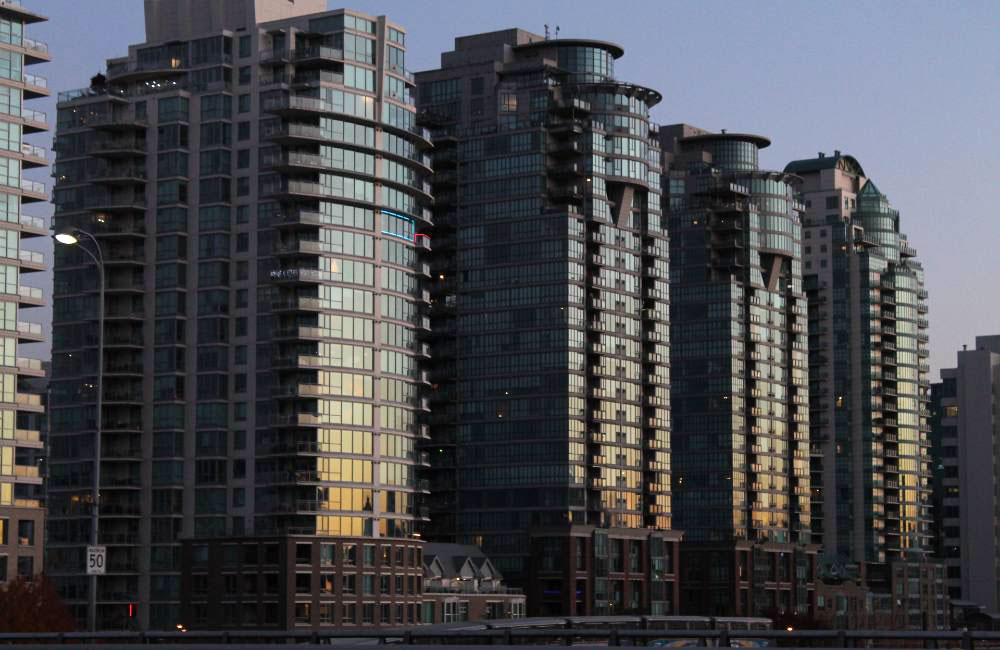[Editor’s note: A new B.C. premier and newly elected municipal governments in B.C. face the challenge of dealing with the housing crisis. The Tyee is reaching out to people working across the housing spectrum to offer advice. Today Mark Goodman and Cynthia Jagger of Goodman Commercial Inc. share their perspectives from their work in commercial real estate, including rental apartment buildings. Check back for more housing perspectives in our occasional Tyee series on housing advice for B.C.’s new leaders.]
This fall, British Columbians saw leadership changes in both municipal and provincial governments. It will be intriguing to see if new leaders can follow through on what they have said they’ll do.
On Oct. 15, municipal elections took place across the province. Some municipalities witnessed huge changes, others opted for more of the same. The transition in provincial leadership, meanwhile, was expected. Premier David Eby was anointed on Nov. 18.
Watching one of the first meetings of Vancouver’s new city council showed fresh councillors finding their footing. The new ABC Vancouver super-majority will benefit decision-making, though such power brings great responsibility. Amid the many issues at stake in Vancouver, the previous council’s excuses of fracturing due to the sheer variety of councillors’ perspectives will no longer be acceptable. From many residents including property owners, we’ve heard cautious optimism.
What’s up for rental in Vancouver
One interesting new motion from council requires city staff to report back on opportunities for fixed-rate community amenity contributions, or CACs, in the first quarter of 2023. In our view, so long as there are no CACs for rental projects (remember, rental itself is a CAC!) and council resists exorbitant rates, this should help unlock more housing faster.
Our hope is that the new mayor and council will consider our previous suggestions — most importantly, to bring a suite of new incentives to emancipate the thousands of rental units stuck between approval and construction.
Additionally, we hope to see programs that encourage the development of four- to six-storey projects such as the Secured Rental Policy, or SRP, to be further expanded into more areas of the city.
We have supplementary thoughts on the implementation of the Broadway Plan and welcome the opportunity to speak to those (Mayor Ken Sim — give us a call!). More certainty and less red tape are needed.
Housing in BC: hits and possible misses
Provincially, the Vancouver Sun has reported that $1 billion in provincial funding commitments were already made within the first week of Eby’s new role. On apartment buildings, our first positive news is counterbalanced with a significant concern to flag for owners.
The Housing Supply Act, Bill 43, was announced on Nov. 21. In short, municipalities already deliver housing needs reports but some will now each be required to set, with the province, a housing approval target to be met within a certain timeline.
Should they miss it, the province now can address the shortfall through various means. Some municipalities have supported this bill, and others have not.
For municipalities that don’t pull their weight, we advocate for the implementation of negative consequences for continued non-action. We support options such as empowering the province to approve official community plan-compliant housing applications should a municipality reject them. Additionally, we would like to see the opportunity to either provide or retract provincial funding in municipalities that do or do not accommodate for the growth that is coming.
For the apartment building sector, our apprehension stems from the new premier’s campaign promise to provide a government right of first refusal for the purchase of existing rental buildings.
Having had direct experience with these types of impediments during a transaction, a right of first refusal can be complex for both buyers and sellers. Many of our clients sell for reasons such as death, sickness, divorce or other difficult situations. The idea that a deal is only a deal when a government or like entity decides whether they will waive their right or not, could have major implications for timeline, liquidity and value. No details so far, but in our minds, impositions on how, when and to whom a property owner sells, do not sit well.
Further, the waiving party — government or other agency — would require significant staff hours, funds and legal fees to review every real estate opportunity and administer this program. Could this time, taxpayer money and energy be better spent elsewhere?
Finally, ample product is currently listed for sale. There’s no need for a leg up, as any buyer with funds can offer to buy the buildings right now.
We hope owners will have the opportunity to discuss this type of policy and provide feedback.
We need leadership in tumultuous times
For commercial real estate, the final two-thirds of 2022 have been tumultuous. We’ve been fortunate to continue conducting business and assisting clients, recently closing two large west side transactions.
Our 35-year study demonstrated that in every downturn, government interference has been a factor. With inflation stubbornly high, the global economic outlook worsening and recession looming, incentives and sound policies are needed.
With new leaders in place, planning for economic growth, increasing the supply of new rental housing options and ideas for bringing positive opportunities to British Columbians would be a great start. ![]()
Read more: BC Politics, Housing, Municipal Politics, Urban Planning



















Tyee Commenting Guidelines
Comments that violate guidelines risk being deleted, and violations may result in a temporary or permanent user ban. Maintain the spirit of good conversation to stay in the discussion.
*Please note The Tyee is not a forum for spreading misinformation about COVID-19, denying its existence or minimizing its risk to public health.
Do:
Do not: